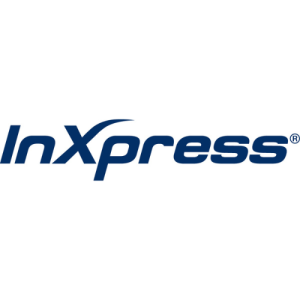Introduction
Becoming a franchisee is an exciting venture that offers the opportunity to run your own business under an established brand. However, understanding the financial aspects of franchising is crucial for success. In this blog, we will address some frequently asked questions (FAQs) regarding franchisee finance to help you make informed decisions and navigate the financial aspects of your franchise journey.
- How Much Does It Cost to Buy a Franchise?
Depending on the brand, sector, and location, franchises can be purchased at a wide range of investment levels. A few thousand to several hundred thousand Rand can be spent on franchise fees. Along with the franchise fee, other costs to take into account include those for working capital, inventory, leasehold improvements or store building, and equipment. To learn more about the various costs associated with franchise ownership in South Africa we recommend you read our article covering the other expenses that come with buying a franchise. Here are a few examples of franchise prices in South Africa:
- KFC
New franchise owners could anticipate paying close to R6 million for a new franchise, according to the most recent franchise data from KFC available.
- McDonald’s
The required average investment ranges from R4 million to R6 million. A cash contribution of between R1.4 million and R2.1 million, or 35%, is required as an unencumbered contribution.
- Debonairs Pizza
The typical investment needed is R1.7 million. Monthly royalties and marketing contributions are equal to 12% of net sales.
- Steers
Drive-Thru franchise fee: R75,000; in-line franchise fee: R68,000. A drive-through costs R3.75 million, while inline transaction stores cost R1.97 million on average. Monthly royalties and marketing contributions equal 11% of net sales each month.
- Nando’s
R37,500 is the application fee; R250,000 is the franchise fee. Average investment needed: R6.7 million for a drive-through; R5.4 million for an in-line store; and R3.5 million and R2.8 million, respectively, as 50% unencumbered cash contributions.
- What financing options are available for franchisees?
Franchisees frequently combine different forms of funding, such as investor money, bank loans, personal savings, and government grants or finance programmes. Some franchisors might provide internal financing or aid in obtaining loans. Nedbank is one of the commercial banks providing bank finance. More information is available by clicking the banner on this site.
- What are the ongoing fees and expenses?
The franchisor usually receives recurring payments from franchisees, which can include royalties (a percentage of sales), marketing fees, and other expenses. You will also have ongoing operating costs like rent, utilities, employee salaries, and inventory costs.
- What is a Disclosure Document (DD)?
Prospective franchisees are given the Disclosure Document, which is a legal document. It is a legal requirement of the Consumer Protection Act’s regulations dealing with franchising that a franchisor provide this document, along with the franchise agreement, to potential franchisees 14 days before signing the agreement. It includes crucial details about the franchise system, such as initial and ongoing costs, existing franchisee contact details, and the franchisor’s financial standing. Prior to entering into any agreements, carefully read this document and the franchise agreement.
- How Long Does It Take to See a Return on Investment (ROI)?
The time it takes to achieve a return on investment varies widely, depending on the business model and your efforts. Ideally, franchisees would like to see ROI within three to four years. By achieving ROI within the term of the franchise agreement, the franchisee can take some profits and also save for the revamp required at the time of renewal. Thoroughly researching the franchise’s performance and industry trends can give you a better idea of the timeline. The financial projections and assumptions in the disclosure document also provide an indication of potential performance.
- What Happens If I Can’t Meet My Financial Obligations?
If you’re struggling to meet financial obligations, it’s essential to communicate with your franchisor and bank. They might provide assistance or make adjustments to help you get through challenging times. Understanding your contract’s terms is essential because some franchises contain clauses that permit termination or takeover if financial obligations are not met.
- Can I sell my franchise?
Yes, you can typically sell your franchise this of often referred to as a franchise resale, but only if the franchisor approves the new buyer and according to the terms of your franchise agreement. Be prepared for possible costs and a procedure that entails locating a qualified buyer who satisfies the franchisor’s requirements.
- How do I create a financial plan for my franchise?
It is crucial to create a thorough financial plan. Start by estimating your startup costs, ongoing costs, and anticipated revenue. Consult with mentors or financial experts for advice, and be ready to modify your strategy as your company grows.
- Should I hire an accountant or financial advisor?
Working with an accountant or financial advisor who has knowledge of the franchising industry is advantageous. They can assist you with registration requirements, budgeting, tax planning, and financial decision-making.
- What financial records should I keep?
Maintain complete records of all financial transactions, including receipts, invoices, income, and expenses. These records are essential for tax purposes, financial analysis, and demonstrating compliance with your franchise agreement. SARS requires all businesses to keep records for a minimum of five tax years.
Conclusion
Success as a franchisee depends on having a solid understanding of the financial aspects of franchising. You can make educated decisions and position yourself for a successful and long-lasting franchise business by addressing these frequently asked questions and seeking advice from franchisors, financial advisors, and industry experts. Keep in mind that careful planning and financial planning are essential to achieving your entrepreneurial goals within the franchise model.










